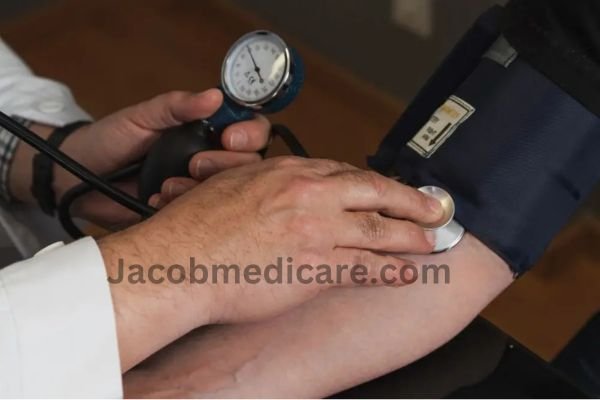
The Connection Between Chronic Stress and Hypertension: Breaking the Cycle
Stress is an inescapable part of life, and at such low levels, it’s useful in keeping us alert and more responsive to challenges. But chronically stressed—periods involving ongoing, prolonged periods of tension—can adversely impact the body and underlies many health conditions. Probably of greatest concern is its correlation with hypertension, commonly termed high blood pressure. Understanding this connection is crucial, as it allows individuals to take proactive steps to break the cycle and improve their overall health.
What Is Hypertension?
Hypertension involves a condition in which blood pressure levels remain elevated during any period. Blood pressure measures the force of blood’s pushing against the walls of an artery as the heart pumps. If these forces are kept high enough for a long time, it can cause damage in the blood vessels and significant health complications, including heart problems, stroke, and destruction of the kidneys. High blood pressure is also known commonly as the “silent killer” because it usually develops without an appearance of noticeable symptoms.
Chronic stress: Impact of chronic stress on the body
Stress causes a natural “fight-or-flight” response in the body, which releases hormones such as adrenaline and cortisol. These hormones increase heart rate and constrict blood vessels, which causes a temporary increase in blood pressure. Although this response is normal in acute situations, chronic stress means that the body remains in a heightened state of alertness for prolonged periods. Such sustained stress response can cause long-term changes in blood pressure regulation and other physiological systems.
How Chronic Stress Leads to Hypertension
Hypersecretion of Hormones
Chronic stress causes excessive production of stress hormones, such as cortisol. After some time, elevated cortisol levels start to affect the body’s ability to control blood pressure, thus causing hypertension.
Behavioral Effects of Stress
Stress tends to evoke unhealthy coping behaviors, like overeating, smoking, or drinking alcohol and lack of exercise. Such behaviors contribute to obesity, low cardiovascular fitness, and increased blood pressure.
Inflammation and Vascular Damage
When stress is persistent, it causes inflammation within the body, which further damages the walls of blood vessels. The damage makes arteries less elastic, increasing resistance to blood flow and contributing to high blood pressure.
Disruption of Sleep
Stress can interfere with sleep patterns, leading to insomnia or poor-quality sleep. Sleeping is crucial for cardiovascular health, and chronic sleep deprivation has been strongly linked to hypertension.
Overactivation of the Sympathetic Nervous System
Stress keeps the sympathetic nervous system, which is responsible for the “fight-or-flight” response, constantly activated. This sustained overactivation increases heart rate and vascular resistance, both of which elevate blood pressure.
Breaking the Cycle: Managing Stress and Hypertension
The relationship between stress and hypertension is clear, but the good news is that both conditions can be managed through lifestyle changes and stress reduction techniques. Here’s how to break the cycle:
1. Practice Stress Management Techniques
Mindfulness and Meditation: Practice including meditation, deep breathing, or even yoga to calm the mind and reduce stress hormones.
CBT: CBT is often useful in helping the client become aware of the actual thought patterns and changing their focus to reduce stress and anxiety.
2. Live Healthily
Exercise regularly. This is one way a person can reduce stress as it lowers blood pressure, maintains heart health, etc. Engage in moderate activity for at least 30 minutes on most days of a week.
Balanced Diet: A diet that is full of fruits, vegetables, lean proteins, and whole grains helps in maintaining cardiovascular health. The intake of sodium needs to be restricted to a greater extent to maintain the blood pressure.
3. Sleep Problems
Develop a consistent bedtime routine and maintain an environment that is suitable for sleep.
Reduce exposure to screens and caffeine before sleep.
4. Harmful Coping Mechanisms
Reduce alcohol consumption and quit smoking.
Find healthy stress outlets, such as hobbies or social connections, or maintain a journal.
5. Blood Pressure Monitoring and Management
Track your blood pressure at home or receive regular medical check-ups
Adhere to your medication and treatment plan if any, as recommended by your health care provider
6. Support
Social interaction lowers stress. Share your worries with friends, family, or a therapist.
Joining support groups for hypertension or stress-related illness can also be a real source of insight and encouraging. The Importance of Early Treatment
Addressing chronic stress and hypertension early can prevent serious health complications. Many people may not realize they have high blood pressure until it causes significant damage, so regular check-ups and self-awareness are critical. If you’re experiencing persistent stress or have been diagnosed with hypertension, take proactive steps to manage these conditions before they escalate.
Conclusion
Chronic stress is in close relation to hypertension-it’s kind of a cycle with severe potential impacts on health if not tackled. Understanding the tie between stress and hypertension breaks the circle, giving them a window to better your lifestyle as well as the mode of coping with stressors. Managing stress will also reduce the blood pressure. Moreover, it improves your general quality of life and makes you feel healthy, happier, and resilient to live with life. Take a step today—the heart and mind will love you.
